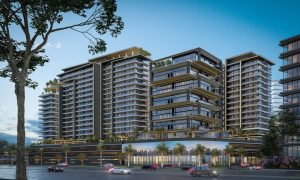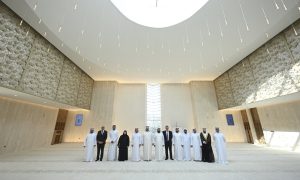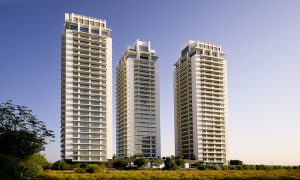UAE real estate market performance heavily dependent on impact of government initiatives – JLL’s Salbak
Launch of various government initiatives expected to boost sentiment and drive demand

Despite several sectors across the UAE’s real estate market continuing to be challenged during the first half of the year, the launch of various government initiatives is expected to boost sentiment and drive demand over the coming months, a real estate expert has predicted.
According to JLL’s Q2 2019 UAE Market report, the year ahead will see market performance heavily depend on how quickly these initiatives have an impact. The general economic environment has also shown a slight uplift, it added, with the UAE’s GDP growing by 2.2% in the first quarter of the year, supported by a robust government, the Central Bank of the UAE has said.
In Q2 2019, the UAE government announced a raft of initiatives, with the aim of driving economic diversification and stimulating weakened market demand. The long-awaited freehold law was finally enacted in Abu Dhabi, which for the first time, allows foreigners to own land and property within the emirate’s investment areas on a freehold basis. The new law aims to encourage foreign investment and provide investors with more certainty.
In addition, Dubai saw the launch of a new initiative for permanent residency. Known as the ‘Golden Card’, the scheme aims to provide permanent residency to investors and exceptional workers in the fields of health, engineering, science and art.
“Overall market sentiment should improve in the long run with the announcement of stimuli such as the new visa regulations. While the benefits of these initiatives are not likely to have an immediate impact, we do expect some sectors of the real estate industry to pick up in the run up to 2020,” said Dana Salbak, research associate at JLL Mena.
“While the residential sector in, both, Abu Dhabi and Dubai witnessed subdued performance overall, new initiatives to drive expat home ownership will likely boost demand. The office sector, too, will witness potential upside from these new initiatives launched to stimulate the economy,” she added.
In Q2, Abu Dhabi’s office sector continued to face downward pressure with further declines in rentals for both Grade A and Grade B space, the report said. However, there is some demand for smaller sized units as global corporates are focusing on occupancy metrics to enhance employee productivity by eliminating wasted space.
In addition, the government’s announcement of Hub71, as part of its economic stimulus package, to support technology start-ups, is also expected to boost the sector.
In Dubai, the office market continued to soften, but there remains a demand for co-working space. While this sector currently accounts for less than 1% of all office space in Dubai, it is expected to grow rapidly over the coming years.
The UAE’s retail sector remains the most challenged due to ongoing increased supply and low consumer spending. In response, mall owners are investing in new technologies to find ways to increase retail sales and footfall. In recognition of the growth of e-commerce, the announcement of digitally-enabled malls like Dubai’s ‘Mall.Global’ are expected to drive the market in the months ahead.
Abu Dhabi’s hotel sector was the standout performer in Q2, recording a 12% increase in ADR’s in the year to May, in comparison to the same period last year, said the report by JLL. The UAE government’s initiatives such as the exemption on visa fees for children, free sim cards for tourists on arrival, as well as a strong calendar of events, are expected to positively impact the tourism sector overall, it concluded.
























